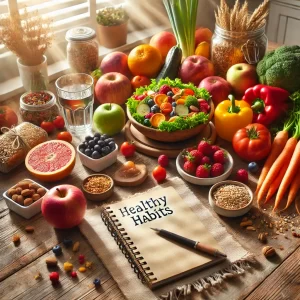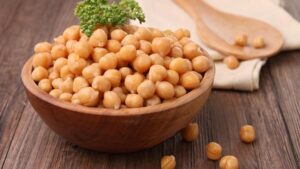What to eat to avoid a heart attack?

Did you know that eating the wrong foods at the wrong times can increase your risk of a heart attack? If you’re not careful, these foods can also sabotage your efforts to avoid one. So what are these sneaky culprits? Well, first of all, it’s important to get your diet right. After all, food is fuel for your body. The right kinds of food will keep you energized and ensure that you have the nutrients your body needs to function optimally. When it comes to heart health, though, there’s a lot we still don’t know. That’s why the new guidelines released by the American Heart Association (AHA) recommend limiting our intake of some key foods: red meat, processed meats like bacon and hot dogs, sugary drinks like sodas and juice cocktails, as well as sweets and other high-fat or high-sugar foods. Here’s how to eat to avoid a heart attack. Learn more here.
Eat the Right Kinds of Food to Avoid a Heart Attack
While the AHA’s guidelines don’t specifically mention which types of food are most likely to cause a heart attack, there are quite a few things you should probably avoid. Red meat is a key offender. Studies have found that people who eat the most meat are also more likely to have heart disease. But not just any meat will do. The best cuts of red meat are leaner, with less than 10% fat. Lean red meat also contains important minerals and vitamins, including iron, zinc, and vitamin B-12. Eating too much red meat has been linked to an increased risk of certain types of cancer, as well as elevated triglyceride levels and heart disease. Fortunately, there are plenty of other healthy options, including poultry, fish, beans and other legumes, eggs, low-fat dairy products, soy, and low-fat dairy alternatives.
Stay Hydrated
Another important way to keep your heart healthy is to stay hydrated. Studies have found that people who drink more water are less likely to have heart disease. This is partly because water is important for the body’s metabolism, along with the body’s health and function. In fact, a lack of water can lead to increased blood pressure and increased risk of heart disease. Whether you choose to drink carbonated water, bottled water, or just plain old H2O, keep your daily intake high. A good rule of thumb is to drink half your body weight in ounces. If you weigh 150 pounds, you should drink 75 ounces of water each day. While water does an excellent job of quenching our thirst, it’s also important for staying hydrated. You should be consuming about half your body weight in ounces each day just so you don’t become dehydrated. Dehydration can negatively affect your heart health by increasing your blood pressure and decreasing your heart rate.

Fill Up on Foods That Fight Inflammation
Many of the foods on the AHA’s “avoid” list are high in saturated fat or calories, which can increase inflammation throughout the body. This inflammation can lead to a host of problems, including the risk of heart disease. The best way to reduce this inflammation is to eat a healthy diet that’s rich in vegetables, fruits, whole grains, and healthy fats. If you’re looking for a great source of fibre and plenty of vitamins, antioxidants, and minerals, try vegetables. These veggies are low in calories and sodium-free, and have been proven to improve heart health, including reducing blood pressure, blood lipid levels, and oxidative damage. Other vegetables that can be consumed in high amounts to fight inflammation include broccoli, Brussel sprouts, sweet potatoes, and tomatoes. When it comes to fruits, there are a few you should be eating more of to reduce inflammation. These include blueberries, apples, and pomegranates. And, of course, you should be eating a healthy amount of all types of vegetables.
Don’t Forget the Fruits and Veggies!
Finally, another key tip for heart health is to include plenty of vegetables and fruit in your diet. Fresh fruits and vegetables are rich in vitamins, minerals, fiber, and antioxidants. They are low in calories, which can help you lose weight, and they’re filling, so you don’t eat as many calories overall. Plus, they’re low in saturated fat. These foods are especially good for your heart. A recent review found that consuming five servings of fruits and veggies a day can lower your risk of having a heart attack by nearly 50%! Fruits, especially, contain high amounts of vitamins and minerals that help reduce blood pressure and lower cholesterol levels in the blood, and also protect against heart disease. Vegetables are also packed with good stuff and low in calories. They’re rich in fiber, which can prevent the digestion of LDL cholesterol, or “bad cholesterol,” from occurring. They’re also rich in vitamins, minerals, and antioxidants. And they’re filling, so you don’t consume as many calories overall. Keep in mind, though, that not all vegetables are created equal. Some, such as potatoes and corn, are high in calories and should be consumed in moderation. Others, such as broccoli and carrots, are low in calories and recommended for daily consumption.

Make sure your food is heart-healthy
The best way to ensure that your food is heart healthy is to prepare meals at home. You can use whole grains, fresh veggies, and lean proteins along with healthy fats and spices to make healthy meals that are easy to make. You can also prepare healthy snacks, such as fruit and veggie bars and other pre-portioned portions. If you’re eating out, choose a restaurant that offers healthy options, such as a salad or grain-based entrée. If you can’t make healthy food at home or choose to eat out, make sure your entrée is low in saturated fat, such as fish, chicken, or lean meats.

So what kind of food should you eat to avoid a heart attack?
The bottom line is that, to keep your heart healthy, you must eat a diet rich in fruits and vegetables, along with low in saturated fat and high in fiber. While there are many different ways to get this great combination of food, one of the best is to prepare your own meals at home. If you follow these tips, you’ll be well on your way to eating the right kind of food to avoid a heart attack. So make sure you stay hydrated, stay active, and don’t forget to include fruits and vegetables in your diet.




